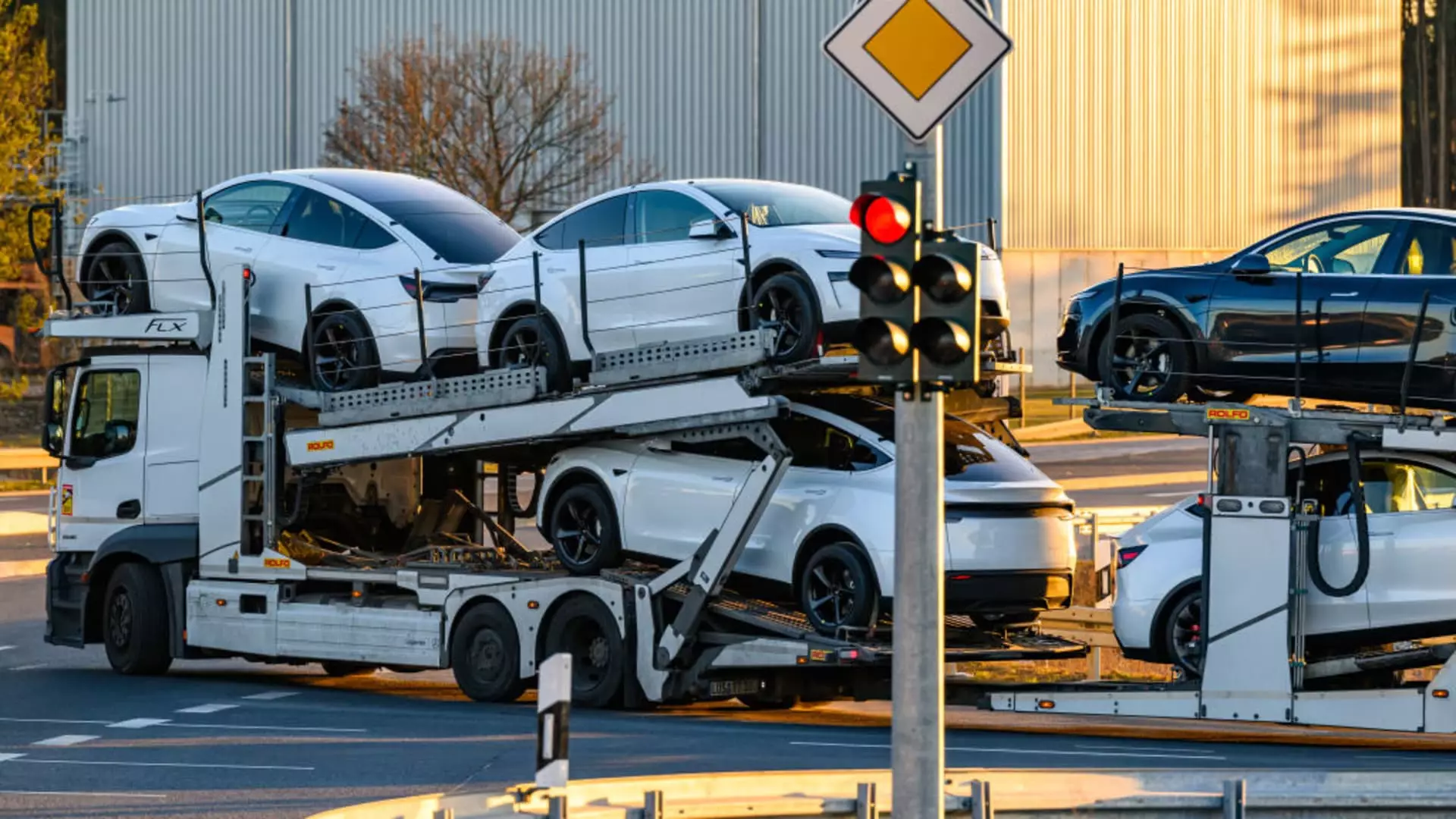With a staggering 336,000 vehicle deliveries in the first quarter of 2025, Tesla is enduring its most worrisome moment in recent memory. This figure marks a 13% decline year-over-year, a brutal setback for a company that once reveled in the euphoria of unprecedented growth. Investors had anticipated numbers ranging between 360,000 and 370,000 units, even projecting up to 377,590 deliveries based on compiled analytical insights. The reality, however, painted a far bleaker picture, signaling potential trouble ahead for the electric-vehicle giant that was once considered invincible.
The problem doesn’t just rest in the delivery numbers; it also mirrors Tesla’s declining production rates, which stood at a meager 362,615 units for the same period. Various analysts, including Dan Ives of Wedbush Securities, have labeled this disparity as truly catastrophic, asserting that the metrics indicate a crisis—a so-called “fork in the road moment.” To an extent, these sagacious words ring with the resonance of impending doom, as they highlight a corporate structure increasingly unable to keep pace with its own ambitious targets.
Musk’s Dual Role: Business Leader or Political Player?
Furthermore, complicating matters is CEO Elon Musk’s dual role as the head of the company and his work in the politically charged Department of Government Efficiency. The fact that he is spending considerable resources on political endeavors—spending $290 million to aid Donald Trump’s campaign and aligning himself with controversial political movements—has led to severe reputational fallout. Public perception is a fragile thing, and Tesla is finding itself caught in a quagmire of protest and backlash, an unfortunate consequence of Musk’s polarizing rhetoric and affiliations.
In addition to political fallout, Musk announced plans to produce a redesigned version of the beloved Model Y SUV, highly touted to be “the best-selling car on Earth” this year. While aiming for lofty goals is commendable, the company’s current reputation may hinder its ability to achieve such aspirations, especially in an era where consumer trust often influences buying decisions.
European Market: Once a Stronghold, Now a Weakness
Tesla’s European market share paints an alarming picture of its struggles. Once a kingpin in the electric vehicle landscape, its market hold plummeted from 17.9% to just 9.3% across 15 countries—an astonishingly rapid decline. In Germany alone, its grip on the battery electric vehicle sector fell from around 16% to a meager 4%. In a market burgeoning with new EV competitors like BYD, Tesla’s previous reputation seems to be fraying at the seams. This isn’t merely a numbers game; it’s a narrative of fading dominance and increasing competition, leading to a shocking revelation that the so-called “Tesla halo” may be dimming.
China’s Lingering Shadows: Subpar Sales Amidst Stiff Competition
In China, where Tesla established one of its most important production hubs, the narrative is similarly grim. Sales slipped to 78,828 units in March 2025, reflecting an 11.5% year-over-year decline. The Asian market, once seen as a growth engine for Tesla, is now plagued by intense competition from formidable local rivals. With companies like BYD emerging as serious contenders, the landscape has shifted dramatically, threatening Tesla’s previously secure position.
The numbers released by the China Passenger Car Association underscore a disheartening trend for the automaker, compounding the external pressures already faced due to political backlash and declining consumer trust. Even in Canada, a brief glory period was tainted by scrutiny and regulatory concerns, resulting in frozen EV subsidies and questions regarding sales validity. Each setback steadily chips away at Tesla’s once-untouchable status.
The Fallout: Investors and Market Sentiment
The financial ramifications of this decline are hard to ignore. Tesla shares dropped a staggering 36% in just the first quarter of 2025, marking their sharpest decrease since late 2022. This steep fall amounted to a staggering loss of approximately $460 billion in market capitalization, a catastrophic blow to both investors and the company’s long-term sustainability. When a corporation that symbolizes innovation and progress begins to falter, the consequences stretch far beyond mere numbers; they venture into the domain of public confidence.
With investor sentiment increasingly protruding into skepticism, it becomes essential for Tesla to recalibrate its corporate strategy swiftly. The volatility in sales combined with Musk’s polarizing political forays leaves little room for error. If the company fails to restore both operational efficiency and a positive public image in the coming quarters, it may find itself hindered by its own ambitions. Tesla is at a pivotal juncture—it must choose its path wisely.

